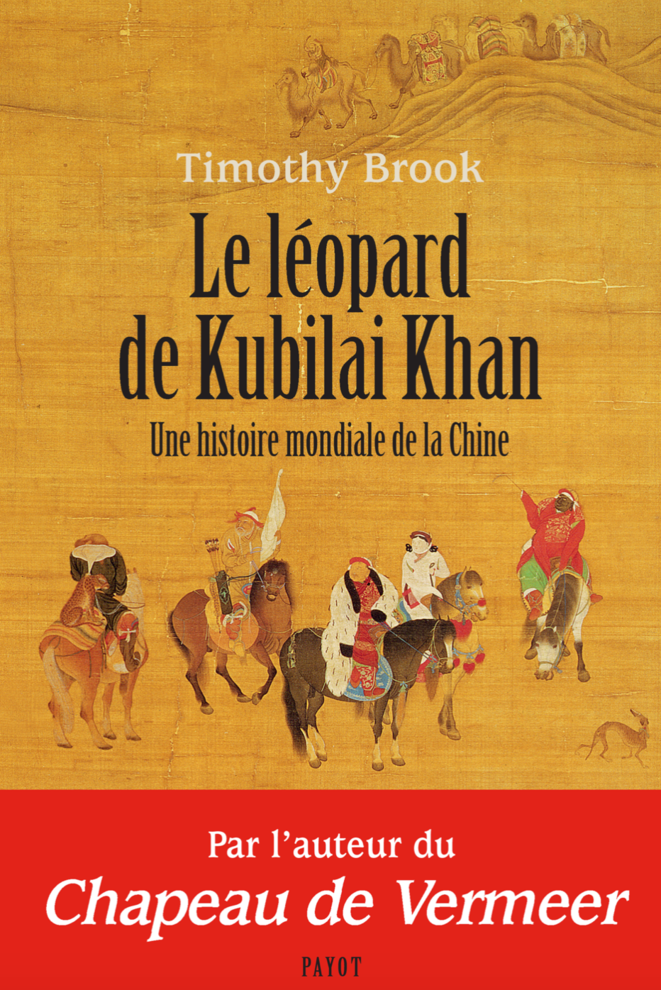原文- The Unmanifested Colonialism of Imperial China (Part 2)
IPFS
Original title: L'impensé colonial du nouvel empire chinois
Original publication media: https://www.mediapart.fr
Original link: https://www.mediapart.fr/journal/international/190820/l-impense-colonial-du-nouvel-empire-chinois?page_article=1
Original author: FRANÇOIS BOUGON
Original publication date: August 9, 2020
Translation: Ozgur

Canadian sinologist Timothy Brook, in his exciting latest book, The Leopard of Kubilai Khan - A History of the World from a Chinese View of the World - certainly doesn't need to worry about it. and was sent to prison. (Related link https://www.payot-rivages.fr/payot/livre/le-léopard-de-kubilai-khan-9782228924221 ) In his book, he narrates another history of "Great Unification" parallel to the current "Great Unification of China" by the Beijing regime. But it was not the Han people but the descendants of Genghis Khan, the Mongols (1279-1368), who were the "second great unification" after the Qin Shi Empress in the third century BC Before that, Brook explained, “China used to be a dynasty in which a single family monopolized the central government, because according to the concept at the time, the emperor was the Son of Heaven, and his exclusive power came only from the authorization of God. And the Mongols’ The arrival brought about a transformation, a transformation that meant a belief in great military power was implanted in. Since then people have become more convinced that if you want to extend the power of one family to the whole world, and to extend the power of all others Political entities were incorporated into a single system of unified power, and military power was crucial. This is what "China" became after that - the idea of a powerful Manchu Empire. In addition, only in the not too distant past, the concept of "Chinese" did not arise in "China". Only foreigners call them that. In an article published in 2015, American sinologist Arif Dirlik cited a record of a Portuguese merchant soldier, Galeote Pereira, in the early 16th century, He spent time in prisons in southern China. To his surprise, when the businessman talked to those "Chinese", those "Chinese" did not call themselves "Chinese", but Pereira insisted: What is the name of your country? How do you answer when people in other places ask you where you are from? For the "Chinese", this question may seem strange, but they still give the final answer: in ancient times there were many kingdoms, but now we have only one ruler, but each region still uses its old name. These areas are today's provincial capitals, and the whole of all these areas is called the Ming Dynasty (Ming Dynasty), and its inhabitants are the people of the Ming Dynasty. Professor Wang Ke of Kobe University, Japan, in "The Disappearing "Nationality" - "Nationality" Discourse in Modern China and National Identity of Ethnic Minorities" (Chinese, China University Press, Hong Kong, 2016) It emphasizes that until after the establishment of the Manchu Qing Dynasty, because the Manchu rulers regarded the Han people who had been subjects of the Ming Dynasty as their main enemies, the concept of the Han nation came into being. The discussion is based on celebrating the important position of the Han nationality in the formation of the "Chinese nation". Reformist thinkers like Liang Qichao based on "the new (Chinese) nation needs a new history to give her substance." This goal has all been involved and contributed to the final formation of this discourse. The national consciousness developed from this, and the development of this national consciousness led to the birth of a state of the Han nationality. And all of this is to follow in the footsteps of Western modernization. Just as the French primary school students know "our ancestors of the Gauls", the Chinese peers also have their "Yellow Emperor" (relevant link http://www.theses.fr/2001IEPP0034 ) in this context nationality Historiography writers (*Historiography) have mistakenly included colonial territories such as Tibet or Xinjiang into multicultural historical narratives. In the 1930s, the Nationalist government issued a speech on the "Republic of Five Nationalities" (Han, Manchu, Mongolian, Tibetan and Muslim). The communists, on the other hand, advocated the "many sources in one" narrative. This is where Xi Jinping’s “ethnic fabrication” comes from, and those who reject this narrative, Uyghurs, Tibetans, and even Han Chinese like Hong Kong, are destined to be “harmonized” in the name of the Chinese Dream. Or silence in prison, or re-educate in an education camp to learn how to be a "good Chinese". * Historiography - The history of historiography is mainly to study the development process of history. Historiography in different eras reflects the historical view of the era and presents the development process of the history of human thought. The history recorded in each era in human history reflects the people's ideas at that time, the author's observation, writing form, prejudice, and interpretation of historical events. Since the methods of studying history are quite different in different eras and different regions, it is impossible to have a very precise and unified definition of historiography that can be agreed by all.
Like my work? Don't forget to support and clap, let me know that you are with me on the road of creation. Keep this enthusiasm together!
